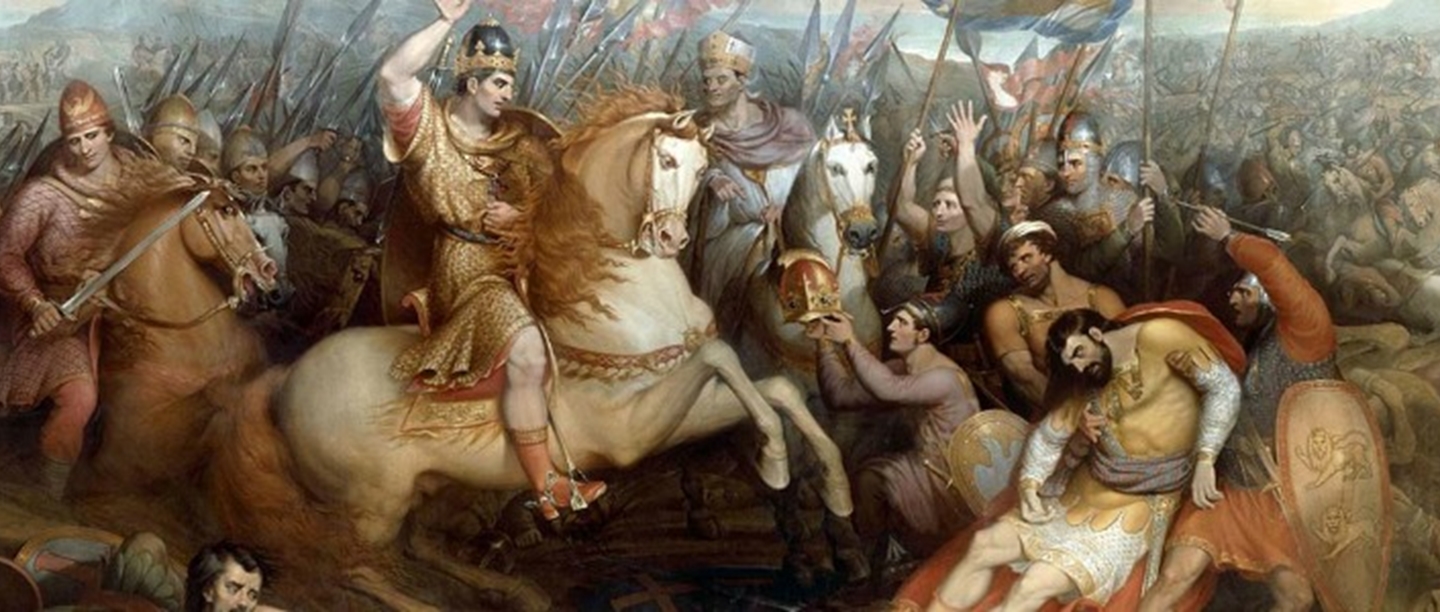
Today we mark the 950th anniversary of the Battle of Hastings – arguably the most important date in English history. The Norman Conquest brought about the most radical change in society ever seen in England, and the question of whether this was for the better or for the worse is very much open to interpretation.
Land and wealth
When William first approached his men with the idea of invading England, he received a cool reception. It took the promise of land and titles to persuade them otherwise. After the Battle of Hastings, William kept this promise and carved up much of England, rewarding those who had fought alongside him with land at the expense of the native English aristocracy.
One of the many Normans whose fortunes were transformed was William de Warenne. He chose Castle Acre Priory as the headquarters for his East Anglian landholdings.
If you look at the Domesday Book, which tells us what England was like in 1066 and in 1086 (when it was compiled) you can see how the old English aristocracy had been destroyed.
A new feudal system
Old Sarum in Wiltshire, where King William likely received the Domesday Book in 1086
In return for these new wealthy lands, the barons who supported the king were expected to contribute knights to his on-going military endeavours, thereby ensuring that the king had well-trained men throughout the country ready to put down any rebellion.
In 1086, William took things one step further: he summoned every land owner, every single landlord and all of their subtenants, to one place to pledge an oath to him – the Oath of Sarum. Within two decades of Hastings, William gave birth to the feudal system in England – the basis for the medieval class system.
Abolition of slavery
According to Marc Morrris, author of the book The Norman Conquest, some 15-20% of people in Anglo-Saxon England were slaves. Over several generations, the Normans stopped this practice.
The Normans were savage in putting down rebellions and in the years following Hastings, a drop in population did occur – as seen in the Domesday Book. However, the Normans were more civil in their politics; before 1066 it was considered the norm to murder your political opponents.
Landscape
Dover Castle is another example of Norman architecture
Arguably, William’s greatest legacy is what we can still see and touch today – Norman architecture.
Before the Normans, there were perhaps only half-a-dozen castles in Anglo-Saxon England. By the time of William’s death, there were hundreds.
The Normans started reinforcing existing fortifications in England the day that they arrived on English shores at Pevensey Bay. Remains of a Roman fortress became the basis for Pevensey Castle and at Hastings itself, a motte-and-bailey castle was hastily made.
Over the centuries, stunning abbeys were built on existing places of worship throughout England, such as at Rievaulx and Whitby. The Normans thought big and built big
Language and culture
Perhaps the most enduring part of William’s legacy was England’s relationship with France.
After 1066, Norman French became the language of the court, government and the upper class – and stayed that way for almost three hundred years. In fact, we still use some Norman words today like beef, pork, noble and purchase.
Diets also gradually changed. It may come as a shock that cider, a drink so strongly associated with the South West of present day England, is a Norman import. It’s also surprising that rabbits were never successfully introduced to the British Isles until the Normans. This meat was considered a delicacy and a luxury for the wealthy.
You can read more about dining like a Norman here.
Banquet hosted by the Bishop of Normandy, from the Bayeux Tapestry © The Art Archive / Alamy Stock
It is also thanks to the Normans that we have surnames; the Anglo-Saxons had nicknames as second names or names indicating their paternity, but they did not have inherited surnames – these arrived with the Normans.
Read more about why we have surnames here.
William’s legacy to England is complex, rich and sometimes difficult. The Norman Conquest deserves several chapters in the Story of England; for better or worse, it made the country what it is today.
Sounds of 1066
Find out about the legacy of the Norman Conquest in our three-part #battle1066 podcast series. You can download each episode on Soundcloud and itunes.